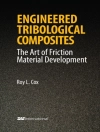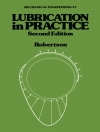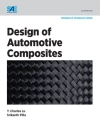Many engineering companies around the world are currently undergoing a quality control and improvement revolution that originally started in Japan many decades ago and this book provides a brief overview of this revolution. Robust design is a central component of the modern approach to quality improvement and is a phrase used to describe any engineering activity whose objective is to develop high quality products (and processes) at low cost. A key characteristic of robust design is the use of statistically planned (designed) experiments to identify those process variables that determine product quality. Robust design was developed in Japan by G. Taguchi in the early 1950s and its widespread use throughout Japanese industry is one of the main reasons why the country has emerged as a major producer of relatively cheap high quality products, especially in the automobile, home electronics and microprocessing sectors. Despite its early success in Japan, robust design remained virtually untried in the United States and Europe until the early 1980s. However, the realisation that quality is a vital ingredient required for success in today’s highly global and competitive markets has since prompted Western companies to embrace the robust design concept. This book explores the planning, implementation and analysis of experiments designed both to improve existing manufacturing process and to create newer and better processes and products.
Mark Evans
Optimisation of Manufacturing Processes [EPUB ebook]
A Response Surface Approach
Optimisation of Manufacturing Processes [EPUB ebook]
A Response Surface Approach
Купите эту электронную книгу и получите еще одну БЕСПЛАТНО!
язык английский ● Формат EPUB ● страницы 332 ● ISBN 9780429606151 ● издатель CRC Press ● опубликованный 2022 ● Загружаемые 3 раз ● валюта EUR ● Код товара 8721775 ● Защита от копирования Adobe DRM
Требуется устройство для чтения электронных книг с поддержкой DRM












